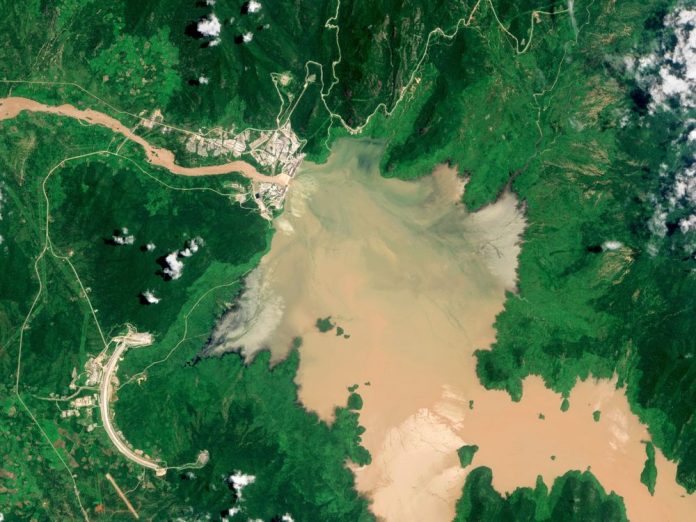Ethiopia plans to proceed with the second phase of filling a giant dam on the main tributary of the Nile River, as it dismissed calls to bring in more international mediators to resolve a dispute over the reservoir.
“The second-year filling of the Grand Ethiopian Renaissance Dam will be carried out as scheduled,” Ethiopia’s foreign ministry said in a statement on Twitter. “The positions contesting the filling of the dam ahead of the conclusion of an agreement has no basis in law and contravenes Ethiopia’s inherent right to utilize its natural resource.”
Several days of talks hosted by the African Union ended on Tuesday with no progress on ending the impasse between Ethiopia and the downstream nations of Egypt and Sudan.
Ethiopia is developing a 6,000-megawatt power plant at the GERD and is expected to begin a second filling of the reservoir when the next rainy season begins in July. Egypt, which depends on the Nile for most of its fresh-water needs, is opposed to any development it says will impact the downstream flow of the river, a position that’s echoed by mutual neighbor Sudan.
Egyptian President Abdel-Fattah El-Sisi last week warned that any attempt to take “a drop of Egypt’s water” would have a destabilizing effect on the whole region. It was one of his strongest statements yet in the years-long dispute over the GERD.
READ: Why Filling Ethiopia’s Mega-Dam Riles Nile Region: QuickTake
On Tuesday, Egyptian Foreign Minister Sameh Shoukry told pan-Arab TV channel Al-Arabiya that his country “and its institutions have different scenarios to deal with this situation to protect its water and its people.” Options at Egypt’s disposal include turning to international bodies such as the United Nations Security Council, he said in other comments carried by Egyptian channel Extra News.
Military intervention is one of the least likely routes Egypt will follow to end the impasse, according to Riccardo Fabiani, North Africa project director at the International Crisis Group.
“Egypt’s threats are best understood as a way of grabbing the international community’s attention and putting pressure on the U.S., EU and other external players to step in,” he said. “Cairo knows very well that even a successful military attack would not solve this problem, because Ethiopia would start again working on the dam, and would isolate Egypt internationally, making a deal on this issue impossible in the future.”
Sudan had proposed at the latest talks that the U.S. and European Union be added as mediators, a position that Ethiopia rejected.
“The two countries followed an approach that seeks to undermine the African Union-led process and to take the matter out of the African platform,” the Ethiopian foreign ministry said. More talks under the auspices of the continental body are expected in the third week of April, it said.
By Samuel Gebre and Mirette Magdy
Bloomberg






























